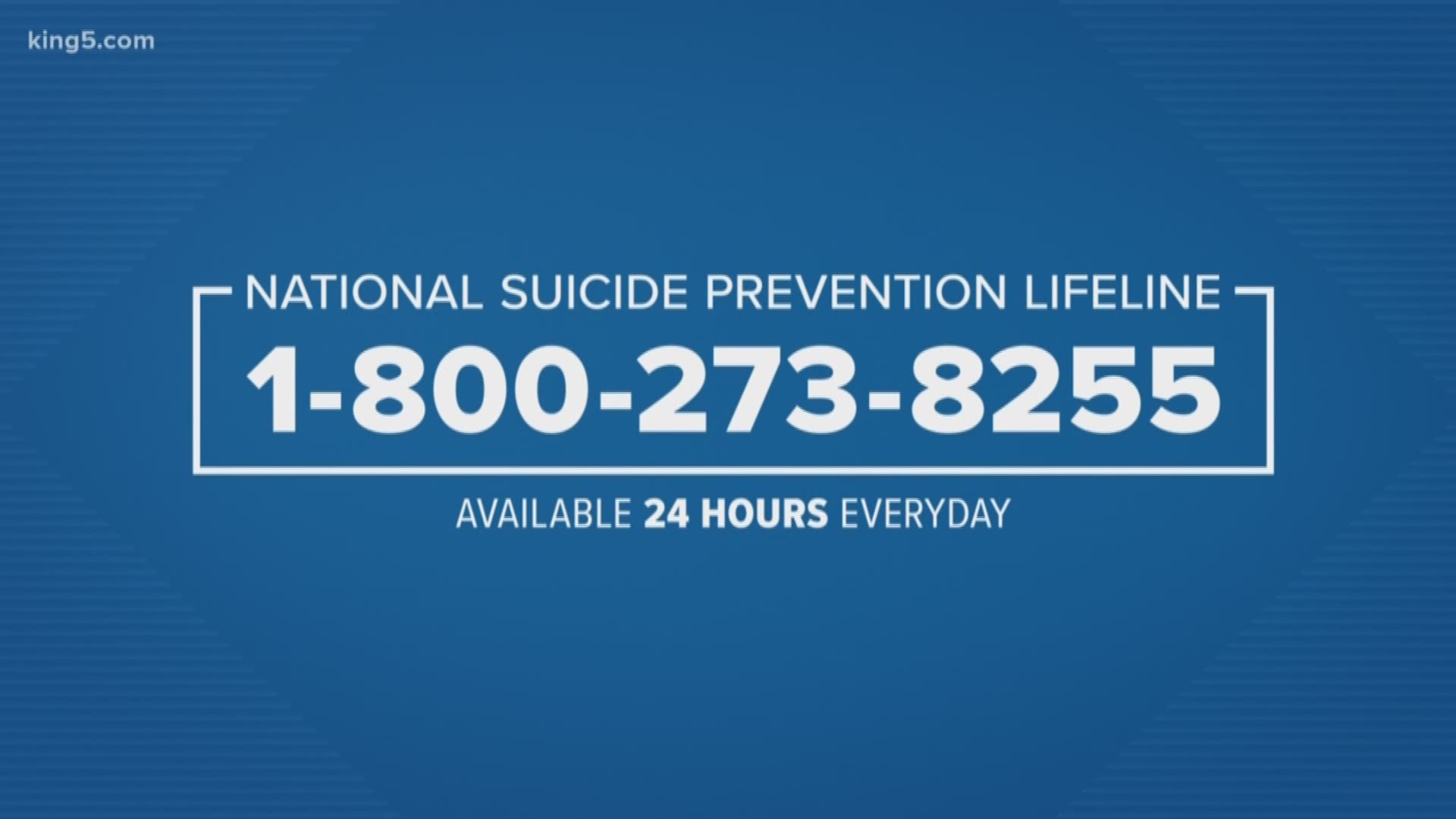SEATTLE — As the coronavirus pandemic — and the efforts to slow the outbreak — disrupts lives and jobs, it can be a "perfect storm" for suicides, says one of Washington's leading experts on suicide prevention.
But Dr. Jennifer Stuber, co-founder of Forefront Suicide Prevention at the University of Washington, said there are immediate steps to stop that storm.
“Now is a time when we should really be checking in with each other,” Stuber said, “Because everybody's world is different than it was a couple of weeks ago.”
Daily life has been disrupted, as states have mandated that people stay at home to slow the transmission of the contagious virus. Many have lost jobs, as businesses and services that relied on foot traffic lost customers.
“There's very clear evidence at a population level that economic downturns are a time to be concerned about suicide prevention,” she said.
In addition to worries about money and health, many of the recommended actions to curb the outbreak, such as isolating at home, avoiding family and friends and changing daily routines, could be an additional source of stress on mental health.
“Our cumulative stress levels are much higher because we’re all thinking about this invisible enemy and how it impacts our families and those we love,” Stuber said.
She said people should watch for suicide warning signs:
- Someone talking about or posting on social media about wanting to hurt themselves
- Becoming isolated or withdrawn
- Talking about feeling trapped
- Loss of interest in favorite activities
Also, with an increase in gun ownership, Stuber said it's important to keep firearms locked. She advises the same for excess medications.
She said if you're worried about someone else, it's OK to ask if they're thinking about hurting themselves. She said that question is often a lifeline and can often lead to someone getting much needed help.
The National Suicide Prevention Lifeline is 1-800-273-8255. It’s free, confidential, and available 24 hours a day.
Washington also has TeenLink, a helpline for teens, which also accepts text messages: 1-866-833-6546.

